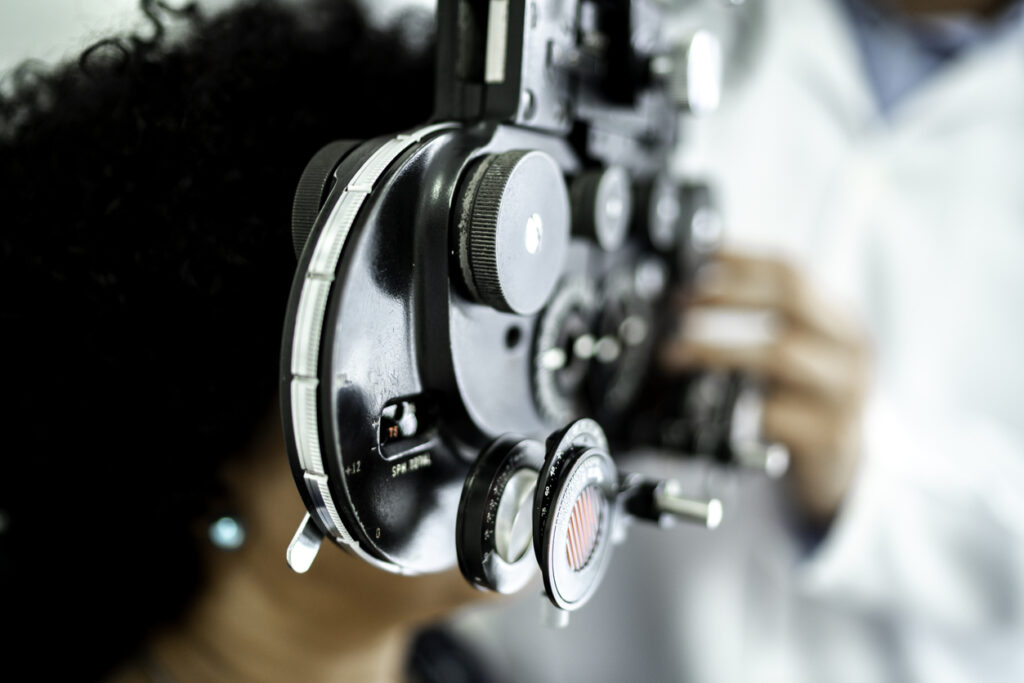Eye Doctor: Knowing the Difference Between an Ophthalmologist, Optometrist and Optician

Is there something strange going on with your eyes? Are you having vision problems? Or you just need a check up? Who you gonna call? An eye doctor! But do you know which eye care professional to schedule an appointment with – an ophthalmologist, optometrist or optician?
A surprising number of people don’t know the difference between these three main types of eye doctors. If you’re one of them, here’s some information to help you select the right eye care professional based on the specific vision issues you’re dealing with.
Ophthalmologists
Ophthalmologists are eye doctors (medical or osteopathic) who provide medical and surgical care of your eyes and vision. Ophthalmologists complete four years of college, four years of medical school, one year of internship and a minimum of three years of hospital-based residency in ophthalmology. Some ophthalmologists specialize in a specific area of medical or surgical eye care such as glaucoma, the retina, cornea or refractive (vision correcting) surgery. To become a “subspecialist,” they complete one or two years of additional training in one of the main sub-specialty areas. Many ophthalmologists participate in scientific research into the causes of eye diseases and vision disorders and cures.
Ophthalmologists provide total eye care, including:
- Conduct routine eye exams.
- Prescribe and fit eyeglasses and contact lenses to correct vision problems.
- Diagnose and treat all eye diseases and disorders, plus eye issues related to systemic illnesses such as diabetes.
- Provide surgical care for cataracts, glaucoma and other eye conditions.
- Perform vision correcting surgical procedures such as LASIK, refractive lens exchange, corneal implants and inlays, and cataract surgery.
- Perform plastic surgery for vision issues such as drooping eyelids.
Ophthalmologists and optometrists have to undertake continuing education to maintain their license and stay up-to-date with the latest standards of eye care.
Optometrists
Optometrists are medical professionals, but not physicians, who provide primary vision care. They complete a four-year college degree program in the sciences and four years of post-graduate professional training in optometry school in order to receive a Doctor of Optometry degree.
An optometrist can:
- Examine eyes for vision and health problems.
- Prescribe and fit corrective lenses (either eyeglasses or contact lenses) to correct refractive errors such as nearsightedness, farsightedness, and astigmatism.
- Provide low vision aids and vision therapy.
- Diagnose common eye problems, such as dry eye and conjunctivitis, and some chronic eye conditions, such as glaucoma and cataracts.
- Prescribe medications for certain eye conditions, such as, conjunctivitis (pink eye) or eye infections, as determined by state law.
- Participate in pre- or post-operative care if you have eye surgery performed by an ophthalmologist.
If you have more complicated medical needs, your optometrist will refer you to an ophthalmologist for diagnosis and treatment.
Opticians
Opticians are eye care professionals but not medical doctors. Some opticians have had formal training and are licensed, but not all states require this.
An optician can:
- Evaluate lens prescriptions written by an optometrist or ophthalmologist and turn them into the glasses or contact lenses you need.
- Offer advice on the types of lenses and frames that will work best for you.
- Order and fit eyeglass lenses, frames and contact lenses.
- Adjust and repair corrective lenses.
- In some cases, dispense low vision aids.
Opticians cannot diagnose, treat eye conditions or provide prescriptions.
Everyone should have a trusted eye doctor. After the age of 40, you should have a trusted ophthalmologist for you and your family. You should consider adding regular exams with your eye doctor. When in doubt about who to contact, always call your local ophthalmologist’s office first and they will advise you.
You can watch this video for more information.




